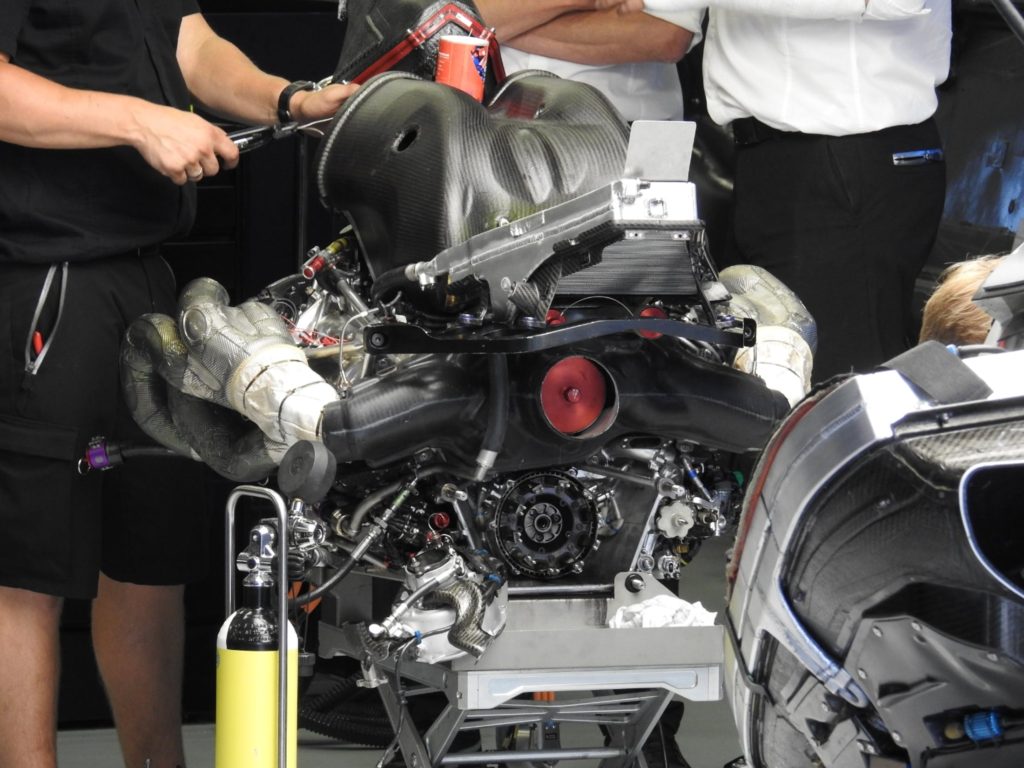Formula 1 Exhaust Wrap

We are big Formula 1 fans here at Kool Wrap and we were delighted to see Daniel Ricciardo win the Chinese Grand Prix last week.
The Formula 1 teams are notoriously secretive and we rarely see behind the scenes photos of their technology. But we recently came across this photo of an unidentified Formula 1 engine from winter testing and you can easily see that they have used exhaust wraps or shielding to contain exhaust heat temperatures.
Heat management is extremely important in F1. Air intakes for intercoolers, radiators and oil coolers need to be kept to a minimum as they create aerodynamic drag and cost valuable lap time.
Racing has always been a fantastic test bed for new technology. Many previous inventions find there way onto our roadcars such as disc brakes, seat belts and fuel injection.
Today’s Formula 1 engines have reached amazing new levels of efficiency. If we look at the energy stored in racing fuel (I will not go into how energy is never created, it is just transformed from one place to another) the engine designers job is to convert as much of that stored energy into twisting power. Petrol engines have always been fairly inefficient. When we convert petrol into heat, some of that energy pushes down the piston to turn the crank, but most of that heat energy disappears out of the exhaust pipe or into the cooling system.
A typical petrol engine in a late model car has an efficiency score of around 20%. That means 80% of the thermal efficiency is lost in exhaust gas, friction etc.
Mercedes F1 announced late last year that they have exceeded 50% thermal efficiency. This helps to explain how they can make 900+hp from a 1.6 litre V6 engine!
Advances in heat management have contributed to these efficiency gains. Mercedes have tried to keep as much heat energy inside the exhaust pipes so that it can drive their turbocharger to both create turbo boost pressure but to also generate electricity that can power their hybrid systems.
We will leave Formula 1 engine technology discussions for another blog later this year, but we can expect to see standard roadcars of the future doing a far better job of converting fuel into usable energy.
